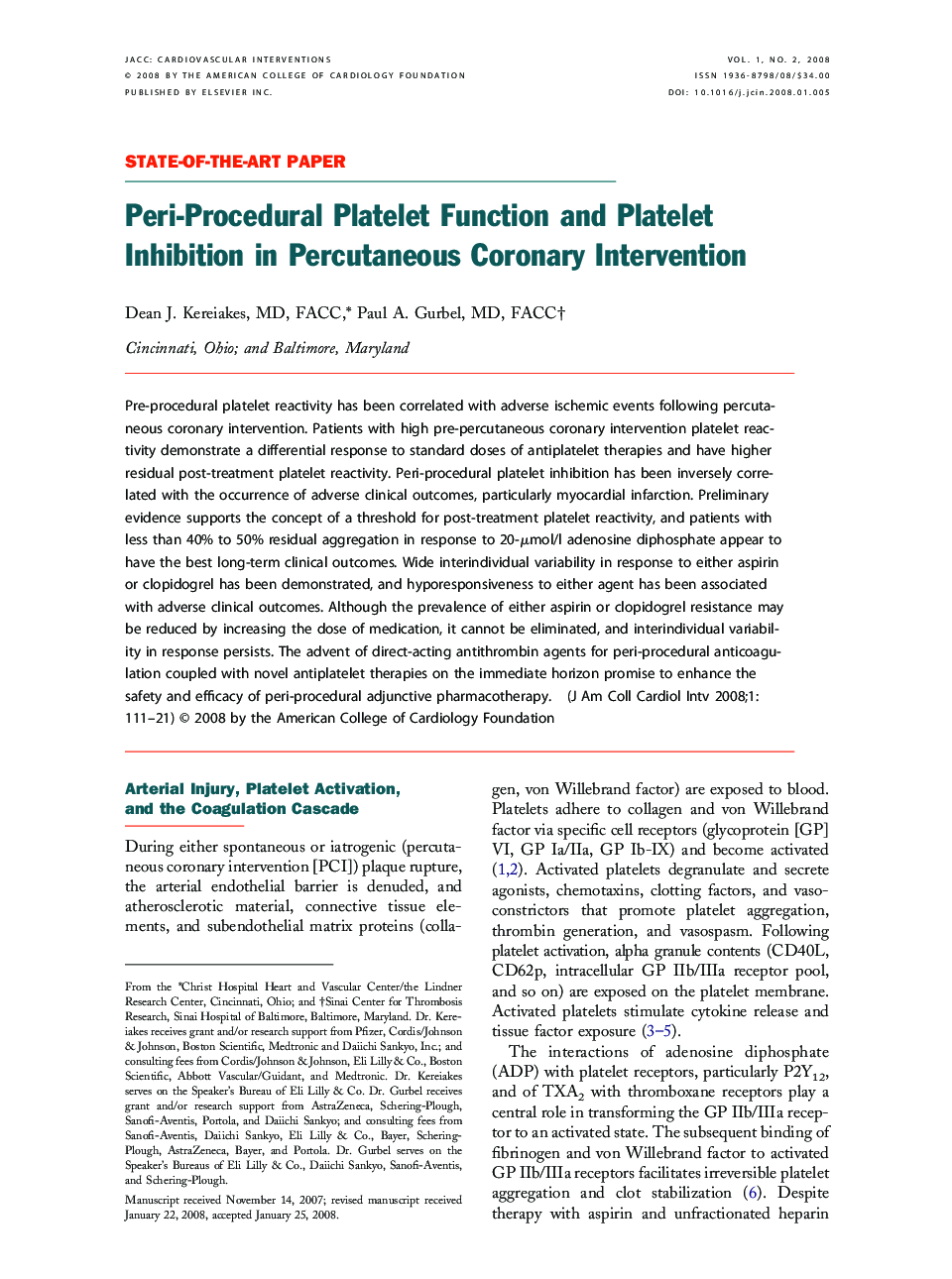| Article ID | Journal | Published Year | Pages | File Type |
|---|---|---|---|---|
| 2942120 | JACC: Cardiovascular Interventions | 2008 | 11 Pages |
Pre-procedural platelet reactivity has been correlated with adverse ischemic events following percutaneous coronary intervention. Patients with high pre-percutaneous coronary intervention platelet reactivity demonstrate a differential response to standard doses of antiplatelet therapies and have higher residual post-treatment platelet reactivity. Peri-procedural platelet inhibition has been inversely correlated with the occurrence of adverse clinical outcomes, particularly myocardial infarction. Preliminary evidence supports the concept of a threshold for post-treatment platelet reactivity, and patients with less than 40% to 50% residual aggregation in response to 20-μmol/l adenosine diphosphate appear to have the best long-term clinical outcomes. Wide interindividual variability in response to either aspirin or clopidogrel has been demonstrated, and hyporesponsiveness to either agent has been associated with adverse clinical outcomes. Although the prevalence of either aspirin or clopidogrel resistance may be reduced by increasing the dose of medication, it cannot be eliminated, and interindividual variability in response persists. The advent of direct-acting antithrombin agents for peri-procedural anticoagulation coupled with novel antiplatelet therapies on the immediate horizon promise to enhance the safety and efficacy of peri-procedural adjunctive pharmacotherapy.
